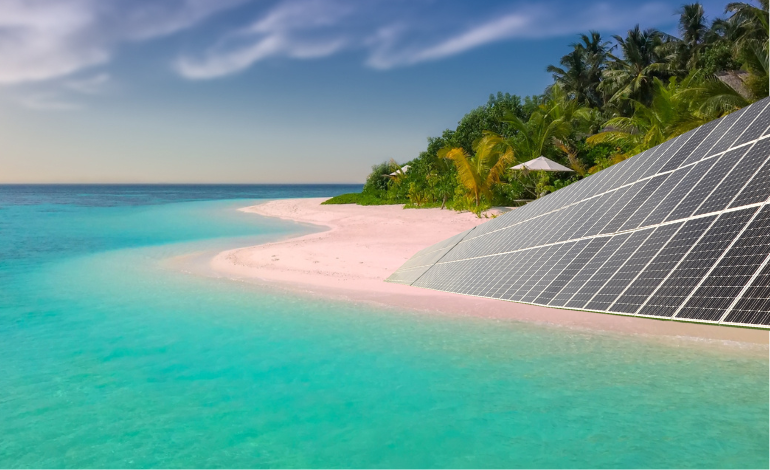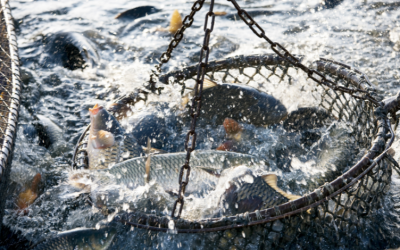Tuvalu and Palau are leading the call for stronger climate financing commitments on the global stage. Facing existential threats from rising sea levels, extreme weather, and diminishing resources, both countries are seeking international support to help fund climate resilience and adaptation projects. Their appeals open up significant opportunities for businesses focused on renewable energy and maritime decarbonisation.
At recent climate summits, Tuvalu has emphasised the urgency of its situation, where rising sea levels threaten to submerge much of its land. As part of its long-term climate adaptation strategy, Tuvalu has initiated several key projects, including plans to switch to 100% per cent renewable energy by 2025. Supported by international partners such as the Green Climate Fund, the Tuvalu Solar Power Expansion Project has already begun installing solar energy systems across the country. This project not only aims to reduce Tuvalu’s reliance on expensive imported fossil fuels but also provides opportunities for businesses specializing in solar technologies and energy storage systems. Companies offering sustainable energy solutions are increasingly invited to support Tuvalu in reaching its ambitious goal of becoming carbon-neutral in the next few years.
Palau is also taking bold steps to reduce its carbon footprint, particularly in its maritime sector. As a country heavily reliant on shipping, Palau is looking to decarbonize its transport infrastructure. In 2021, Palau joined the Micronesian Centre for Sustainable Transport, an initiative aimed at reducing emissions from the shipping industry by promoting low-carbon technologies and alternative fuels. The centre is currently testing electric and hydrogen-powered vessels that could revolutionize the way goods are transported across the Pacific. Additionally, Palau is collaborating with Japan’s Ministry of the Environment to develop green port infrastructure, which will help reduce emissions from docked ships by providing onshore power from renewable energy sources. Businesses involved in ship electrification, green port solutions, and low-emission fuel development have key roles to play in Palau’s maritime decarbonization efforts.
Another live project in Palau involves the promotion of ocean-based renewable energy technologies. Palau recently partnered with Blue Planet Energy to implement ocean thermal energy conversion (OTEC) systems, which harness temperature differences in the ocean to generate power. This innovative technology could significantly reduce Palau’s dependence on fossil fuels, opening the door for businesses involved in ocean-based renewable energy to explore similar solutions across the Pacific.
As Tuvalu and Palau push for stronger international climate financing commitments, businesses in the renewable energy and maritime sectors are well-positioned to contribute. The combination of government-led initiatives and partnerships with global climate funds creates a fertile ground for companies to support these nations in building sustainable, climate-resilient infrastructures.



